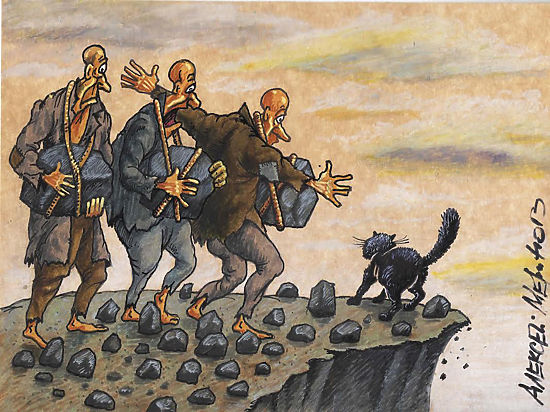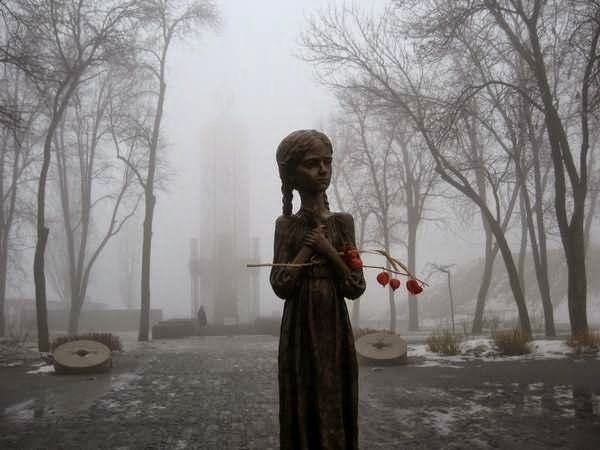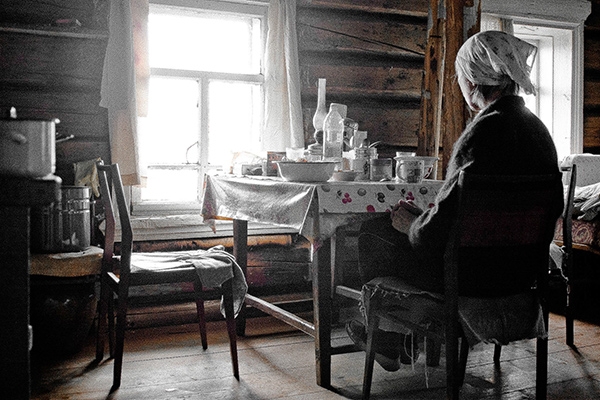
Photo: Timothy Izotov / Kommersant
According to the Ministry, last year the number of Russians living below the poverty line increased by 3 million, reaching 19 million people.
Most of them families with children.
Sociologists and economists say that the most dangerous thing in poverty — addictive.
The average person adapts to her for five years.
Many socially vulnerable have already resigned, but the “new poor” still have a chance. “Ribbon.ru” read the letters that people send to charity funds and leave on the Internet forums. And asked experts to assess the situation.
Habit bad
“My husband earns 25 thousand rubles, although works as a sales representative for a large Corporation. I’m in maternity leave to three years. On the home part 14 thousand get. And two children! Zadolbali me to choose in the store between apples and bananas. Sit roar, like a fool. To go back to school in 2000 to pass a week ago, and I have 1500 left in my wallet, and I’m ashamed to admit: in the parent Committee and all of your friends think I’m good”.
Hope P., Moscow region
Natalia Tikhonova, research Professor at HSE, chief researcher, Institute of sociology, RAS
Rosstat specifies the share of the poor — at least 20 percent.
According to our calculations, close to one third of the population.
The situation is so programmed, because the state admits that today every fifth receives a salary below the subsistence level. There is a deep poverty — poverty, but in Russia, deep poverty is characteristic of a small part of the population.
We refer to this category of people, who have no money to buy soap or toilet paper. We have about 5-8 percent.
The Institute of nutrition of the depth of poverty considers the amount of food consumed.
According to their data, about 2 percent of Russians are starving.
Different groups of citizens, the crisis has varied.
Workers in rural areas were hardest hit by layoffs, despite all the talk about import substitution.
Almost every seventh family in the towns and villages there is an adult that isn’t working without any serious reasons.
Such people were. But now in the village they became two times more.
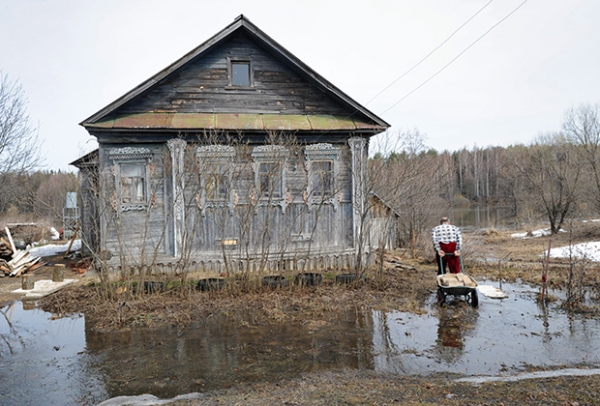
Photo: Dmitry Lebedev / Kommersant
“It’s a shame that in the ass we were, not because lazy, alcoholics, fools. Everything was good, was kept afloat, my tourist business made a profit, albeit less than in 2014, but stable. And then BAM — Turkey. I have a zero in November, December in the negative, in January, was closed and sold out. Thought: well, the husband is the employee, leadership position, large stable firm can live on his salary. A couple of days ago news: new objects no, all of the engineers laid off, the boss remains at three months to close put objects. And then, if nothing new appears, all is free. The salary for these three months to 30 thousand. That’s it”.
Olga A., Yekaterinburg.
The middle class financial situation or stagnating, that is not changing, or worsening.
Heaviest in this category have residents of large cities.
Decreased opportunities for extra earnings, at the same time decreased and revenue.
And in the consumption structure of residents of large cities a prominent place was occupied by imported goods.
“It’s just annoying quality of the products that before were shit, and now although not eating. And the prospect to dress in our producers of clothing and shoes for the big money. When you look at all of these “outfits”, I want to cry. I spent my whole childhood in beggar’s clothes. And that’s my thing — to look good and baby to wear only tasteful and not all in a row”.
Marina S., Irkutsk.
For Russians a bad life is not new.
We won’t have long lived in conditions of relative well-being — years 10 to 12.
Before that we had about the same period when most of the population was in a state of official poverty.
That is, earning below the subsistence minimum.
But the majority of Russians passed the 90-ies, when it was much harder than now. Therefore, the overall response to the current crisis is a temporary situation caused by falling oil prices.
“At least I’m on the poor Turkey and Egypt gathered once a year! Was so happy in those moments. I know — not the oligarch and nothing achieved. But average people also want to be happy and to enjoy life a little”.
Natalia F., Sergiev-Posad.
In the middle class is nowhere as strong Patriotic sentiments.
While the willingness of victims remains.
No dissent because of the unstable economy today does not occur.
Most have a margin of safety.
People while using the footwear, clothing, appliances purchased in full years.
In practice, usually this resource is exhausted in the next 2-2. 5 years. A year has passed. The situation is not critical, but on the fall of revenues will be perceived much more painful.
“I don’t have absolutely nothing. Salary 25 thousand, roomstay — 8. There is a child for kindergarten already accumulated a debt of 6 thousand. Nanny need 2 Grand a month, but can’t be without it! Work from 9 to 18 hours, then we need to get to the house. Well, the garden, as usual, to 18. Dad does not pay child support. Paid ahead for kindergarten. And now his salary not pay”.
Svetlana D., Sverdlovsk region.
The bad news is that people adapt to poverty.
This usually occurs in two jumps.
The first lasts one and a half to two years. During this time, changes are not perceived as critical. Lack of funds means only the lack of resources, nothing more.
The second stage begins after about five years of poverty.
To this point is changing value orientation and social circle.
The process of addiction does not just ends and leads to external changes in life.
And also to internal changes.
If a person stays too long in a state of despair, he develops a sense of hopelessness. He is not inclined to fight for their interests, and thinks only of survival.
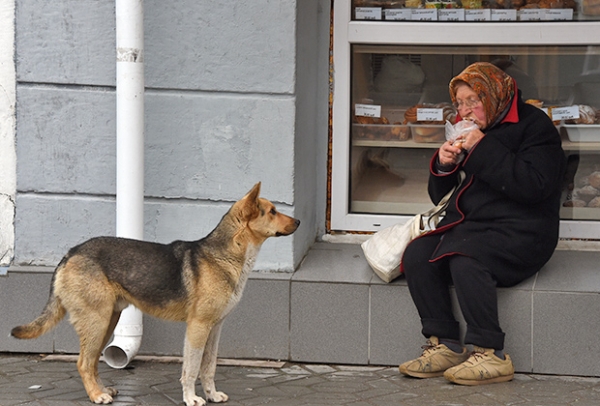
“Just started to live a little better, and again cut both. Forces already simply does not remain. I guess I should just accept the fact that we will grow old in poverty, and to stop trying to be good.”
Anna S., Volgograd region.
They survive, not live
Elena Smirnova, Director of the charitable Foundation “Sozidanie”:
I do not see the Russia that is shown on TV. We go to orphanages and old age homes and see the conditions in which they live. We have 15 years doing this.
“What to do — I don’t know… in the hospital not going. Because nothing is already to go. Buy no matter what. Do not have time to dress children. The fifth son of five years old, and I am ashamed that even biscuits for tea don’t buy. Because on some pasta sit…”.
Family G. , Bashkortostan.
The number of wards is increasing depending on the region. But the crisis itself, many of our wards just didn’t notice. They bad lived before. Not even live and survive.
“My daughter has one leg shorter than the other, really need the phone, and we have no way to buy it, I learned that it costs 6000 rubles, and if I give, then we’ll be sitting hungry for a month. Still need bed linen, cheap to buy, and it colors after the first wash breaks… my Mary was often sick. I’m looking for work at home, but nothing happens.”
Family V., Buryatia.
A lot of letters comes from the countryside.
The main category who we help, is villagers, villages, hamlets.
The farm went broke, there is no other work. This is not parasites and are not drunks.
People want to work — but nowhere.
They can’t access medical care to get, and the store often has to choose — to buy bread or baby biscuits.
Often we go to rural libraries, the township administration with a request to send the coordinates of the needy. Not everyone can write a letter. They are ashamed that they are in such a situation. In each letter write: like arms and legs there, can work, ask rags — to cry shame.
“In our village it is difficult to get a job, because there are no jobs. As a single mother, no child support payments on the child in us is 399 rubles. There is not enough money nor to dress your baby or to feed or to buy a toy. In my wardrobe there are some-the only jeans and skirt. I just can’t spend money on yourself”.
Natalia E., Zabaykalsky Krai.
Usually ask for linens, school supplies, shoes. And necessities: jacket, pants. Word of mouth they have been told that computers and new homes — it is not for us. We specially send used items, so as not to provoke dependency.
“I never sit idle. Keep the cow: sour cream, milk, butter, summer vegetable garden: salads, twist, vegetables and potatoes. Even in summer take in broiler chickens. But here’s the clothes kids can’t. Not enough money”.
Family G., Bashkortostan.
I am sure that we will not knowingly send packages to the needy. We have a lot of players, who stand on your feet and begin to help others. And even written to us: “Thank you, you supported me, now I want to give back by helping someone”. So there is hope.
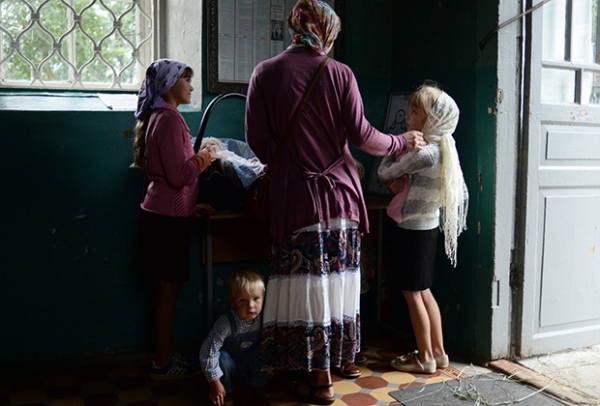
Potatoes will save us
Natalya Zubarevich, regional programme Director of Independent Institute for social policy:
Crisis is not like previous, it is slow and long.
It is increasingly clear that Russia has strongly affected these two groups — families with children and pensioners.
Across the country, regardless of region.
Another feature is that the situation is getting worse gradually, the population adapts, reducing consumption and wimas all. But who long lives in a state of poverty, ceases to resist.
“Live in the village, no work, keep a small farm, and now this crisis. Receive child benefit 199 rubles, and even son I can’t buy underwear, not to mention shoes. He stretches, grows, all that we had, it becomes short”.
Olga S., the TRANS-Baikal territory.
Adapting, people, especially those living in the province, will increase reliance on private farms, on the same potatoes.
Reduced opportunities for migrant labor.
In small towns, where there is no work, return those who worked in large cities, on the Northern watch.
More active will seek jobs in the informal sector of the economy.
As in any crisis, someone will be like a frog, flutter, and someone will put paws and will reduce the consumption to a minimum.

